Westridge Updates Schedule, Adding Extended Passing Periods and Shortening Lunches
Although the Upper School schedule had undergone changes in the past year to accommodate for the later start time at 8:40 a.m, Westridge recently revised the schedule, extending each passing period by five minutes and shortening lunch by ten minutes. On Monday, October 11, Westridge implemented the new schedule.
Brittany Coker, Dean of Upper School Activities, explained why Westridge changed the schedule. “It was actually based on hearing from the students that they didn’t have enough time between passings and that lunch was getting too long for them. They were getting all their food within five to ten minutes and there was just this extra time.” Westridge moved this ‘extra time’ into students’ passing periods so that students could get snacks or water without being marked late.
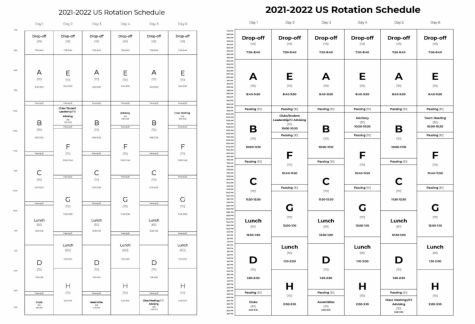
The new schedule is welcomed and appreciated by most students. In some cases, students have to walk across campus, up and down several flights of stairs to get to their next class. “I have a disability which makes me walk two times slower than the average person,” Abby P. ’25 explained. “[With the new schedule,] I’m not late to class and I actually get to my classes. I’m not rushing and I’m not worried about if teachers mark me late just because I’m slow.”
Other students, like Brooklyn P. ’25, are indifferent to the change. “It’s not like we end later or start earlier so it doesn’t really affect me,” said Brooklyn.
“The ten minutes doesn’t really make a difference,” Hilary F. ’25 agreed, although she added that she uses the longer breaks to get snacks between classes.
However, not all students are accustomed to the new schedule. “I wouldn’t use the term ‘adjusted,’” Claire S. ‘23 said when asked to describe her experience with the new schedule. “I’m less confused. I think we should use the term ‘adapting to.’”
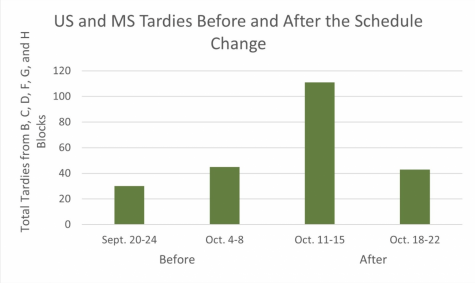
Like Claire, many students are struggling to get to their classes on time. Upper School and Middle School tardies increased significantly from 45 Upper and Middle School tardies in the week prior to the schedule change to 111 tardies in the following week. However, the trend did not carry on, as it dropped to 43 tardies in the week of October 18 to 22. Although initially more students were late to their classes, they adapted to the new schedule and are now able to get to more of their classes on time.
Teachers have also noticed some benefits the extended breaks have to offer. Although Middle and Upper School PE teacher Coach Allison does not teach classes directly affected by the passing periods, she noticed that students aren’t as stressed to get to their next class. She also explained her own experience dismissing middle schoolers after PE in the morning. “We have a little extra leeway time when we send them to class so that they aren’t going to have to run all the way across campus. Sometimes, you get out a little late and you get put in a bad position.”
Upper School Biology teacher Ms. Surin noticed that with the extended breaks, there were fewer late and hungry students in her classes. “Oftentimes, when we had the five-minute passing periods, students would be standing [outside the classroom] and trying to have a snack, and class started. It’s nice to have ten minutes because we have a little more space to breathe between classes.”

Gia is a senior in her fourth year as a Spyglass staff writer and third year as a Copy Editor. She loves solving crossword puzzles and crocheting little...




























![Dr. Zanita Kelly, Director of Lower and Middle School, pictured above, and the rest of Westridge Administration were instrumental to providing Westridge faculty and staff the support they needed after the Eaton fire. "[Teachers] are part of the community," said Dr. Kelly. "Just like our families and students."](https://westridgespyglass.org/wp-content/uploads/2025/03/dr.-kellyyy-1-e1748143600809.png)























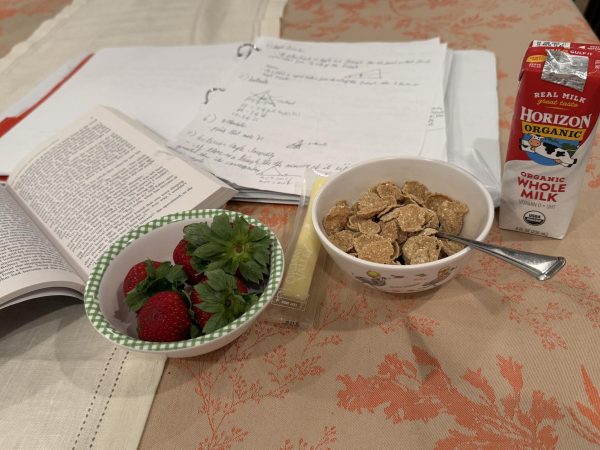

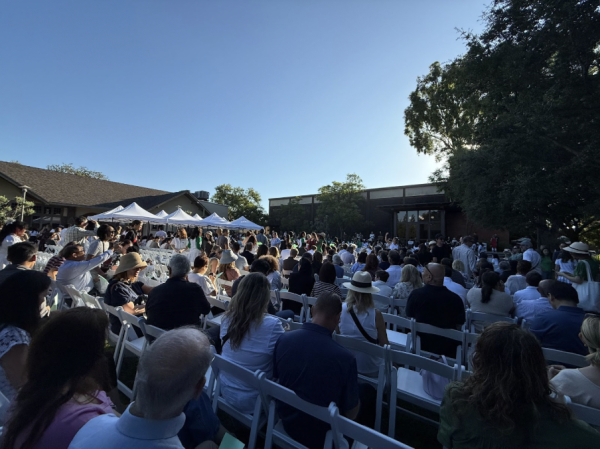

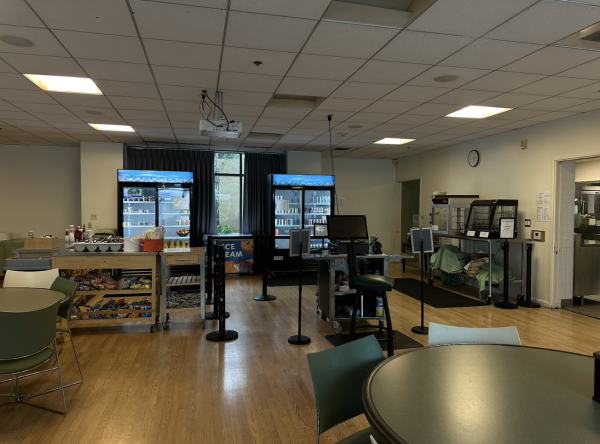
no • Feb 2, 2022 at 5:33 am
tank you for this I need this for a assignment in school
Ella Bilu • Dec 14, 2021 at 12:56 pm
great and insightful, gia. i love it.